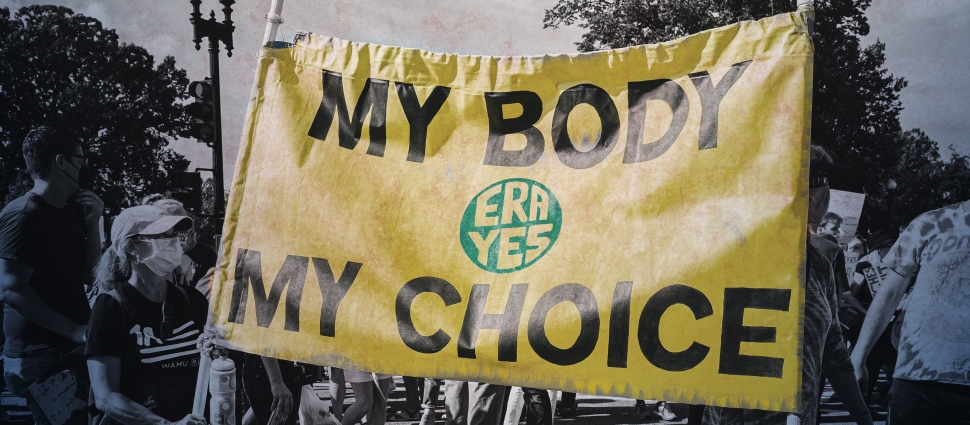Slavery for Our Time

“You shall not murder.”
Death. It happens every day, everywhere across the world, and yet there is something about death that sets it apart from other common events in the world. We approach it with a mixture of contradictory feelings, all of them strong. Awe, horror, fascination, confusion, reverence, and repulsion comingle as we contemplate “the Great Equalizer.” Death distributes decomposition without regard to rank: the small and the great, insects and kings. And there’s a finality to death that sets it apart, the gravity of never-again.
There’s no ceremony more sobering than a funeral. There’s no legal case more serious than homicide. There’s no medical service more urgent than when life is hanging in the balance. Nothing affects us more deeply or more personally than matters of life and death. Nothing remains the same after you bring a child into this world; nothing remains the same after you lose someone you dearly loved
What is true on a personal level is also true on a societal level. Can we, dare we, approach any law, any measure, any provision with more fear and trembling than those which cradle the questions of life and death?
I fear that our country—our whole modern world—has a great reckoning coming, one that we are storing up for ourselves in the haunted institution of abortion. We have a tell-tale heart, beating under the floorboards. We are secretly plagued with a specter from the nauseating mass grave of dismembered bodies. The corpses are buried in a field we hope no one will ever find, but we can never forget. We close our eyes and we are transported to a hallway, every door leading to a room richly furnished, yet empty. Empty tennis shoes, empty bookbags. Outside, we walk by gleaming playgrounds, silent except for the creaking. In our minds, we see hands reaching out—hands that never touched another hand, except to be discarded after death.
The gravity of this situation in some ways mirrors that of American slavery, another institution filled with fathomless evil. Human lives were cheaply held, and easily spent.
No one would choose a life of degrading forced bondage. And yet it was still a life. Though bound in chains, these people lived and found dignity in living. Surely no one would argue that killing these men, women, and children would have been a “humane alternative” to allowing them to go on living as slaves. Yet today our culture has institutionalized killing under the guise of “choice,” and many hardly give it a second thought.
Consider the fruit of legalized, protected, constitutionally defended slavery. Consider the ravages of the Civil War, and a body count which no American entanglement has even drawn close to. Consider reconstruction, and the bitterness, the deep-seated resentments, the nasty, festering racism and hatred and distrust. It took another hundred years before the Civil Rights movement brought to light our ugly hypocrisy. And even today, can anyone really contend that we’ve escaped the sins of the past?
The evils of institutional slavery infected the United States for 90 years after the nation’s founding, to say nothing of the slavery that existed in America in the centuries prior to the Revolutionary War. Roe v. Wade, by comparison, is not yet 50 years old. Perhaps we are not so far gone yet. But for how many years ahead will the blood of institutional abortion continue to fill our land? Who will write Why We Can’t Wait for our time? How many generations must, like Lady Macbeth, frantically wash and re-wash their hands, only to find the “damned spot” hasn’t gone away?
In all of this, we must remember that Jesus Christ gave His life for the forgiveness of sins—including sins like abortion. Jesus offers forgiveness to the desperate soul who sought an abortion, to the medical personnel who perform it, and to the men and women who advocated it.
As we consider the state of our nation, it is easy on an individual level to feel exhausted and helpless. Abortion is a system, a movement, a force. We know there is One who will one day bring it down. But in the meantime, who can stand against such a thing? Who is like the beast? What can we do?
We can begin by sitting with single mothers, supporting them in their need, helping to lift their financial burdens, even stepping forward in adoption and fostering. Yet we must also maintain a sense of urgency. The evil that we are sowing for ourselves year by year is something too awful to comprehend. And so, as our nation sleepwalks through a massacre, we must pray for the mercy of an awakening. Pray for open eyes to see our moral nightmare, and open ears to hear the blood crying from the ground.
Read previous articles in this series here.
Justin Poythress (MDiv, WTS) is Assistant Pastor at Westminster Presbyterian Church in Fort Myers, FL. He blogs regularly at Time & Chance.
Related Links
Classic Koop: Life, Bioethics, Christianity by C. Everett Koop
"A Matter of Life and Death" by Amy Mantravadi
"How the Evangelical Church Awoke to the Abortion Issue" by Matthew Miller
What is Man? by Craig Troxel




